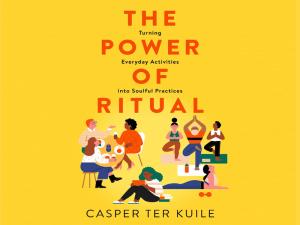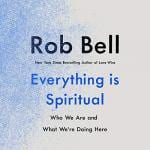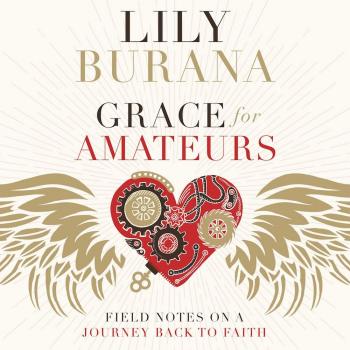 In his first book, The Power of Ritual (HarperOne), Casper ter Kuile makes a case for the value and relevance of personal and group practices—rituals. We need ritual, he argues, now more than ever, to make sense of life, to find purpose, to connect with others. Co-host of the popular “Harry Potter and the Sacred Text” podcast, and co-founder of the Sacred Design Lab, ter Kuile is at the forefront of research on the changing landscape of religion and spirituality.
In his first book, The Power of Ritual (HarperOne), Casper ter Kuile makes a case for the value and relevance of personal and group practices—rituals. We need ritual, he argues, now more than ever, to make sense of life, to find purpose, to connect with others. Co-host of the popular “Harry Potter and the Sacred Text” podcast, and co-founder of the Sacred Design Lab, ter Kuile is at the forefront of research on the changing landscape of religion and spirituality.
Why ritual? Why now?
So often in America we understand spiritual life to be centered around belief. But in much of the non-Christian world, and certainly in the non-religious communities I’ve studied, people gather around shared practices. Ritual is an enormously resonant invitation into deeper personal reflection, richer relationships, and connecting to the natural world and the transcendent.
Tradition and convention are often confused, you write. How so? How are they different?
One of my favorite parts of the book is where I draw on Thomas Merton’s distinction between tradition and convention. Merton argues that convention is what we often call tradition, namely the visible, recognizable, outer expressions of faith and values. The way in which a liturgy is conducted, the songs we sing, the clothes we wear, the time we meet, the building we gather in. All of these things are outer expressions of an inner call. For Merton, tradition isn’t in those outer expression—tradition is the inner call. Our response to that call is always going to change as time and culture changes, too.
Too often, religious institutions get caught up in maintaining and furthering the convention, and lose touch with the tradition. (And the tradition is really what it’s all about!)
I was struck by your discussion of the Dinner Party groups that bring together individuals dealing with grief. Grief disconnects, you write, while ritual has the power to help people reconnect. Does that sum up, in effect, the purpose and power of ritual?
Yes! So often ritual can connect us in ways that just having a good conversation can’t. That’s the power of ritual, that it helps us cross barriers and digs deeper and reveals more about the wonder of life.
You’re quite critical of organized religion, and you’re writing primarily for those who aren’t part of a faith community. What might readers who are part of a faith tradition learn from your book, or from your work with How We Gather (now the Sacred Design Lab)?
My biggest hope for the book is that it affirms the reader’s longing for meaning, purpose and connection, and that it can then (re)introduce some theological wisdom figures who can help us go deeper. So in that sense, it’s a very pro-religion book! But where I think religious institutions are losing their way is how they translate that wisdom. So for a self-identified religious reader, I hope there is much to glean from the book, and if nothing else, it’ll help you learn how to engage with non-religious people who are searching!
Drawing on the concepts of “unbundling and remixing,” you argue that virtually any practice can take on spiritual meaning as long as it is done with the right intentions and mindset. But aren’t there limits to how far ancient spiritual practices can “travel”? Plucked out of the contexts that gave them history and depth, how can concepts like the Sabbath, pilgrimage, or sacred reading enhance lives in the twenty-first century?
I understand my job to be to present these ancient practices in such a way that folks want to learn more about that context, history and community. For example, with our sacred reading practices at Harry Potter and the Sacred Text, each practice is introduced by a leader in the tradition from which it comes, and we’re always careful to remind the podcast listeners about the historical and cultural context from which the practice emerges. So the book does the same. I’m very conscious that I don’t want to facilitate destructive spiritual tourism—especially when engaging practices and traditions from marginalized cultures.
No doubt, when practiced without any of that contextual awareness, much of the magic is lost. At the same time, I don’t think the conversation should be whether folks explore this kind of practice—that ship has sailed! Our job now is how-to guide and support them.
Your book arrives at a convulsive moment. Much of the world is struggling to contain a pandemic. Every aspect of life is being disrupted. What can ritual offer at a time like this?
Ritual life can offer a solid ground when everything else seems to be falling apart. It can give rhythm to our days, and structure to our year. This is the perfect time to deepen our ritual lives.













